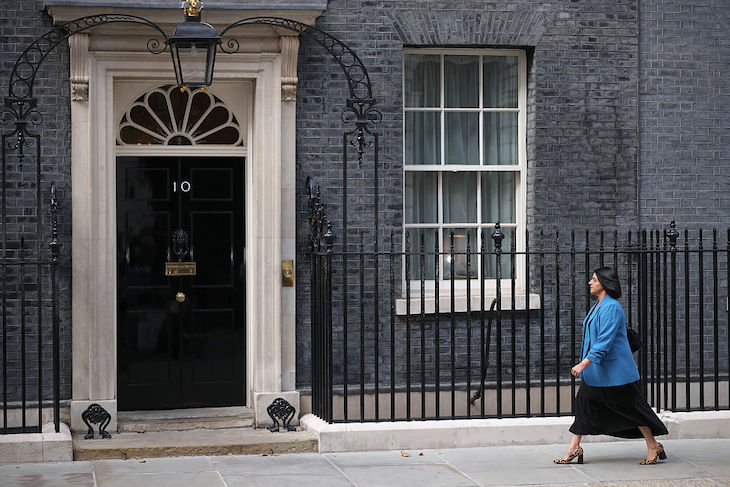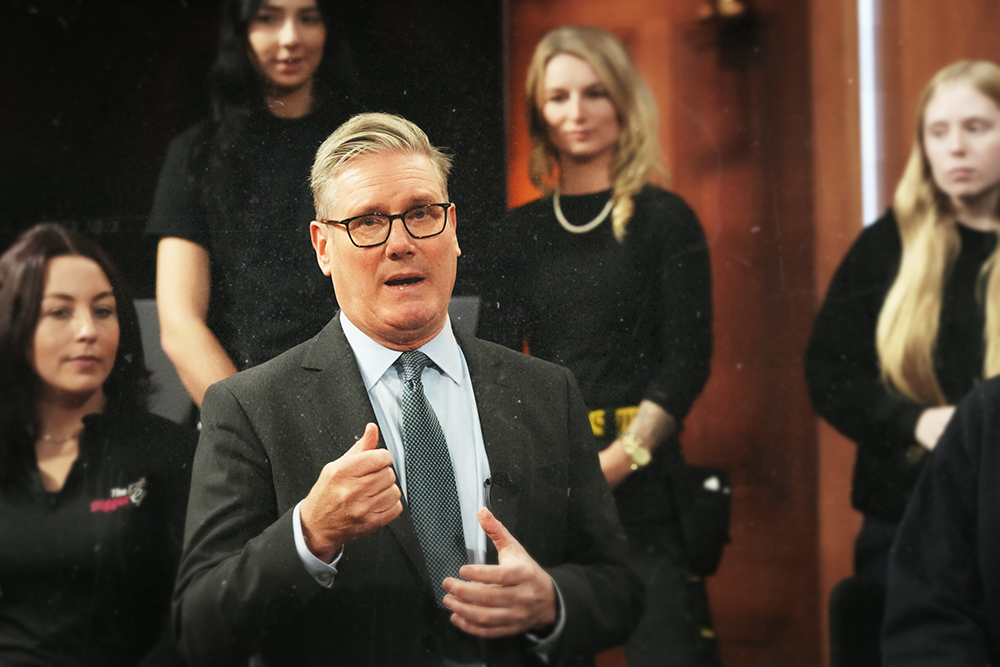Has the Labour party finally found its answer to Margaret Thatcher? Shabana Mahmood’s withering response to Lib Dem MP Max Wilkinson’s po-faced complaint about her language in the asylum debate this week must rank as the most devastating, and justified, playing of the race card in recent parliamentary history. Opposition to using every legal means to stop the boats, she implied, is a kind of luxury belief enjoyed only by those who aren’t at risk of being called a ‘F***ing P***’ in the street.
Has the Labour party finally found its answer to Margaret Thatcher?
Turning the tables on the racial justice panjandrums on her own side by citing her personal experience of racial abuse felt very Thatcher vs the wets. So, too, did Mahmood’s combination of personal conviction and plain, jargon-free, language.
Like Thatcher, Mahmood comes from a religiously devout political family. Indeed, Mahmood (like several of her Labour colleagues) is rather more of a nepo-baby than Thatcher: her father was chairman of the Birmingham Labour party, which surely trumps being alderman of Grantham.
Thatcher in her time was more of an outsider in the Westminster club as a woman than Mahmood is now as a British Pakistani. Nevertheless the latter’s religiosity and conservatism on many matters, including illegal immigration, sets her apart from most people in the modern Labour party which has been partly defined by openness to immigration.
As the country’s centre of gravity has shifted from metropolitan openness in the heyday of New Labour to provincial insecurity in more recent years, Labour leaders have struggled to authentically embody the new mood, despite wrapping themselves in rhetorical union flags. The public can sense it. In case there was any doubt about it, Keir Starmer reminded them with his ridiculous apology for using the term ‘island of strangers’ when introducing Labour’s new hardline policies on legal immigration back in May.
By contrast, Mahmood feels no white liberal squeamishness about a hardline approach to boatloads of black and brown people landing illegally on English beaches. Her inner Birmingham constituency of Ladywood is more than three-quarters ethnic minority and around half South Asian, mainly Pakistani. Like many of her constituents, who are the children and grandchildren of legal migrants, she resents the queue jumping of the illegals.
Many of them also fear, as Mahmood said, that they will suffer if frustration with dysfunctional borders curdles into anti-minority resentment. It doesn’t take many angry nativists to make life unpleasant for a lot of people.
To adapt the famous David Frum quote, ‘If white liberals won’t enforce borders, their ethnic minority colleagues will.’ The British political class has recently got into the habit of handing its most difficult jobs to second generation immigrants. Think of poor Rishi Sunak (one year above Mahmood at Lincoln College, Oxford), who was handed the Tory party at the point of no return in government; then Kemi Badenoch picking up the poisoned chalice after the historic election defeat in 2024; and now Mahmood, who is expected to solve the wickedest problem of all in contemporary politics.
Yet despite the outrage she has provoked on the Labour left, and support she has received from Tommy Robinson and Nigel Farage, the new measures are highly unlikely to succeed in driving down numbers significantly.
Mahmood wants to stay within the current international legal frameworks and ‘Labour values’ and make the current asylum system work. The key proposals include: making refugee status temporary (reviewed every 30 months), removing automatic access to welfare and housing, and granting settlement only after 20 years; streamlining appeals against rejection of asylum claims, making it easier to return families, and narrowing the use of European Convention Article 8 protecting family life; imposing visa penalties on (small, weak) countries that refuse to take back failed asylum seekers; and improving financial incentives to leave.
Mahmood feels no white liberal squeamishness about a hardline approach
Some of her proposals have echoes of earlier Tory failures and fall some way short of the ‘full Danish’ approach. Mahmood should have no difficulty getting the measures through Parliament (those that need legislation). But the courts and the bureaucracy are another matter. As one former Home Office official said yesterday: ‘There is a staggering amount of policy and operational work to be done to get anywhere near implementing the proposals. The Home Office is being set up for another fall.’ Meanwhile, Mahmood will have raised expectations of quick results as the boats will keep rolling in.
The big question is, does she have another shot in her locker? If these measures don’t produce a significant decline in asylum seekers – 110,000 last year on a rising trend, while falling in the rest of Europe – will she move to off-shoring asylum seekers, as the Tories and Reform and some European governments are embracing, or even detaining them in camps? Both would require setting aside the ECHR and the Human Rights Act.
As the next few months are likely to confirm, the only way of stopping the boats, or illegal entry more generally, is to ensure that nobody who arrives illegally gets to stay. They can be given protection and safety but on Ascension Island, or in a camp on Dartmoor. As soon as such a rule is rigorously implemented, people stop coming, so you only need capacity to detain a few thousand at most. Indeed, we need to change the rule on having to claim asylum inside the country to having to claim it outside the country in a UNHCR camp or an asylum hub. We then choose who most needs to come here in the numbers we think are reasonable.
That is for the future. In the meantime, Mahmood needs to hope that her measures will bring at least some downward pressure on the asylum numbers, possibly helped by tougher border controls elsewhere in Europe. Politically, she needs to attract back enough potential Reform/Conservative voters to make up for those driven into the arms of the Greens or Jeremy Corbyn by the new restrictions.
Mahmood would not be the first Ladywood MP to lead her party or the country
But there is another, somewhat overlooked, element to the story that might yield swifter practical and political results for Mahmood: reducing the enormous cost of housing and looking after asylum seekers. The visibility of the Channel crossings is currently compounded by the visibility of housing so many refugees in the local hotels where not long ago people were holding their wedding receptions and golden wedding anniversaries. Ordinary low income British people deeply resent the high cost of this free riding.
As I wrote in a Policy Exchange report in 2023, The Future is Safe and Legal, we should be calling on diaspora groups and people of goodwill to share the burden and open their doors to asylum seekers. The Homes for Ukraine scheme attracted more than 200,000 people willing to house Ukrainians. The number would not be so high for asylum seekers from more culturally distant parts of the world but I expect several tens of thousands of people would step up.
There are now more than 30 ethnic minority groups in the UK with communities of more than 100,000. This is enough to have national and local associations, media and so on, for each. Why is the Society of British Afghans or the Iranian Association not being asked to step up to house and support their co-nationals? Obviously not all asylum seekers can be housed in this way, and the system would need proper oversight, but it could radically speed up the closure of asylum hotels, currently not scheduled until 2029.
Mahmood has picked up these same ideas and could quickly set up new community or individual sponsorship schemes. This is potentially a big win that might one day even help propel Mahmood to the Labour leadership, after some ostentatious left-wing noises on subjects other than immigration.
She would not be the first Ladywood MP to lead her party or the country. Neville Chamberlain won the seat in 1924. In second place, only 100 votes behind, was one Oswald Mosley, still a member of the Labour party and with a burning conviction that only he could lead his party and country to salvation. I suspect the current would-be saviour of party and country would prefer comparison with the Iron Lady.







Comments